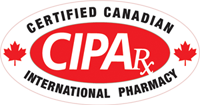Pharmacist's Corner
The best places to store your medications -
it's not where you think
Believe it or not, your bathroom medicine cabinet is not a good place to store your prescription medications. Why? Because the humidity in your bathroom, which comes from taking baths and showers, can be harmful to many medications and decrease their effectiveness.
Moisture, as well as heat, light, and air, can be detrimental to many prescription medications. Sometimes these environmental factors can be harmful to the active ingredients in the medications. Other times, factors such as moisture can soften a pill or tablet, which changes where and how it is absorbed inside your body.
Where and how you store your medications is very important. Here's a list of tips for how to properly store your prescriptions:
- Keep medications in their original containers. If you need to transfer medication to a different container, such as when you travel, check with the pharmacist to see if this is ok and what kind of container you should use;
- Keep all your prescriptions away from heat, light, and humidity. Store them in a location that is cool, dry, and dark. But be sure wherever you store your medicines is safe from children - use child safety containers if possible, or keep medicines in a locked cabinet or somewhere completely inaccessible to a child;
- Do not pour medications from one bottle to another, such as when you have a few pills or tablets left and have already received your next supply. Instead, finish the older bottle first, before opening the new bottle;
- Check with your pharmacist about medications that need to be refrigerated, especially if you're going to be traveling. When you do travel, always carry your medications with you - never place them in checked baggage that could be delayed or lost. And do not leave medications in sunlight or a hot car;
- Eye drops normally need to be discarded a month after they are first opened - check with the pharmacist;
- Never take medications that appear discolored or spotted, or crumble when touched;
- Check the expiration date of your medications, and don't use prescriptions that are out of date;
- Finally, be sure to dispose of old medications properly. See this FDA site for more information about safe medication disposal.
For more tips on how to store your medications, visit this U.S. National Library of Medicine website, or this website by the Partnership for Drug-Free Kids.

